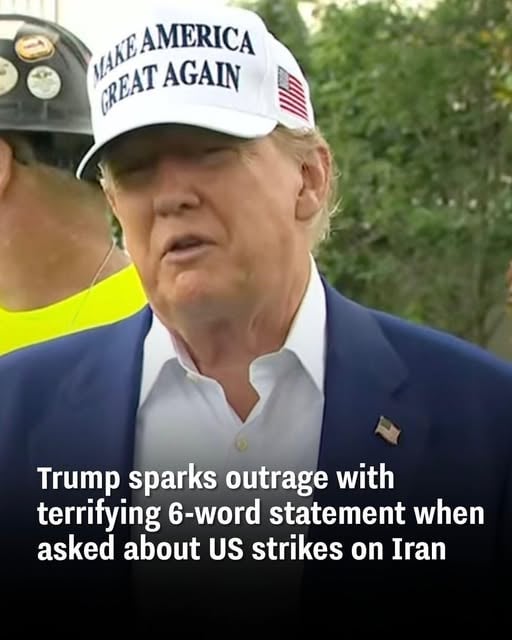Tensions Rise as U.S. Response to Middle East Conflict Draws Global Focus
In an increasingly volatile global landscape, presidential communication plays a vital role in shaping both domestic confidence and international stability. As military conflicts escalate in the Middle East, particularly between Israel and Iran, statements from the U.S. President are being closely watched for signs of potential involvement or restraint.
This week, a brief but highly scrutinized comment made by President Donald Trump reignited national and international conversations about America’s role in the conflict. When asked whether the United States would consider launching military strikes against Iran, President Trump replied, “I may do it, I may not do it. Nobody knows what I’m gonna do.” The remark, though short, sparked a wave of reactions across political, military, and diplomatic circles.
Conflict Escalation in the Middle East
The conflict began intensifying on June 13, when Israel launched a broad military campaign targeting Iranian nuclear and military infrastructure. Israeli officials cited concerns over Iran’s nuclear development as the justification for the strikes, which have included over 1,100 reported targets.
In response, Iran launched retaliatory missile strikes that managed to breach Israel’s air defense systems, hitting urban areas and causing civilian casualties. Notably, one Iranian strike reportedly hit near a hospital in Beersheba, an incident that has drawn global concern and varying narratives from both sides.
The growing toll is severe: Over 220 fatalities have been reported in Iran, while retaliatory strikes on Israel have resulted in at least 24 deaths. International observers have voiced concern over the potential for the conflict to escalate into a broader regional war.


